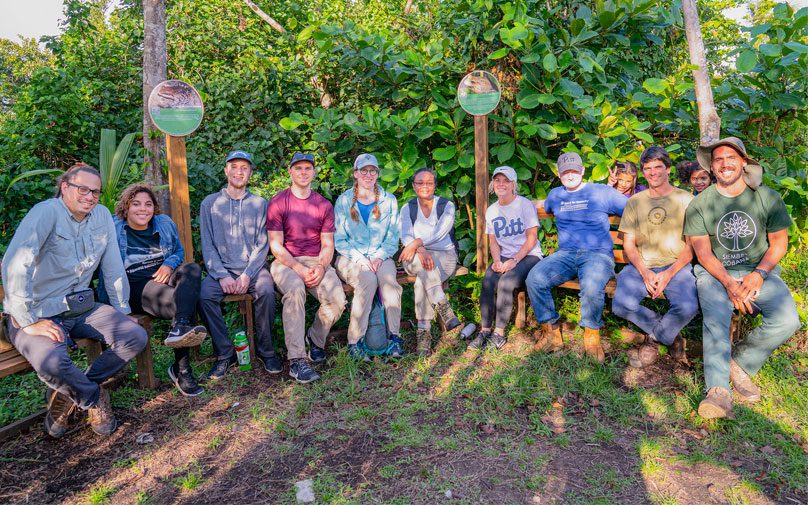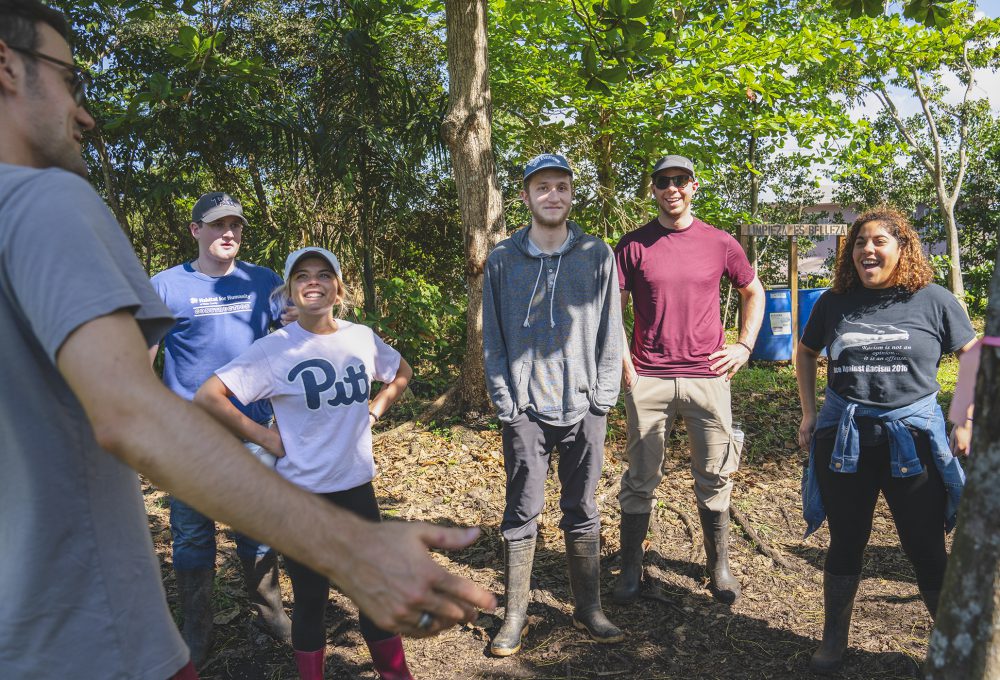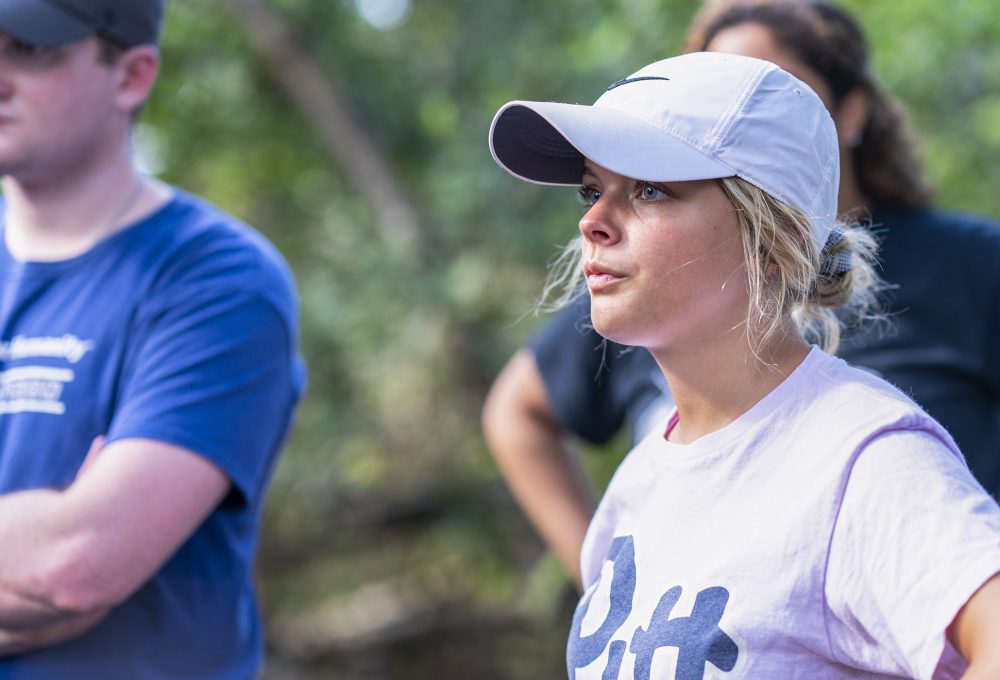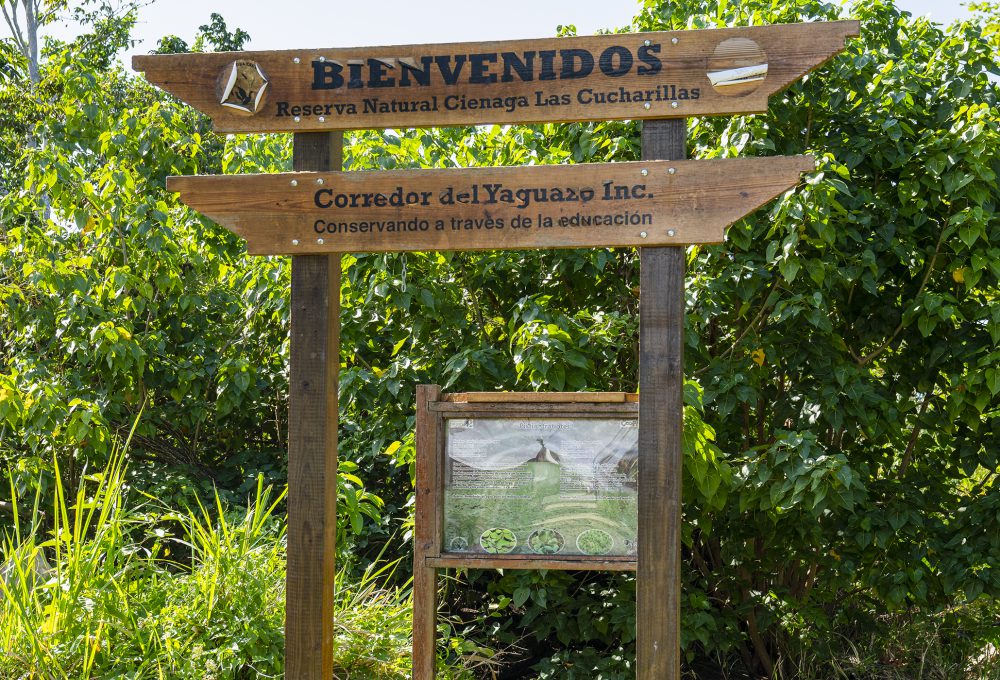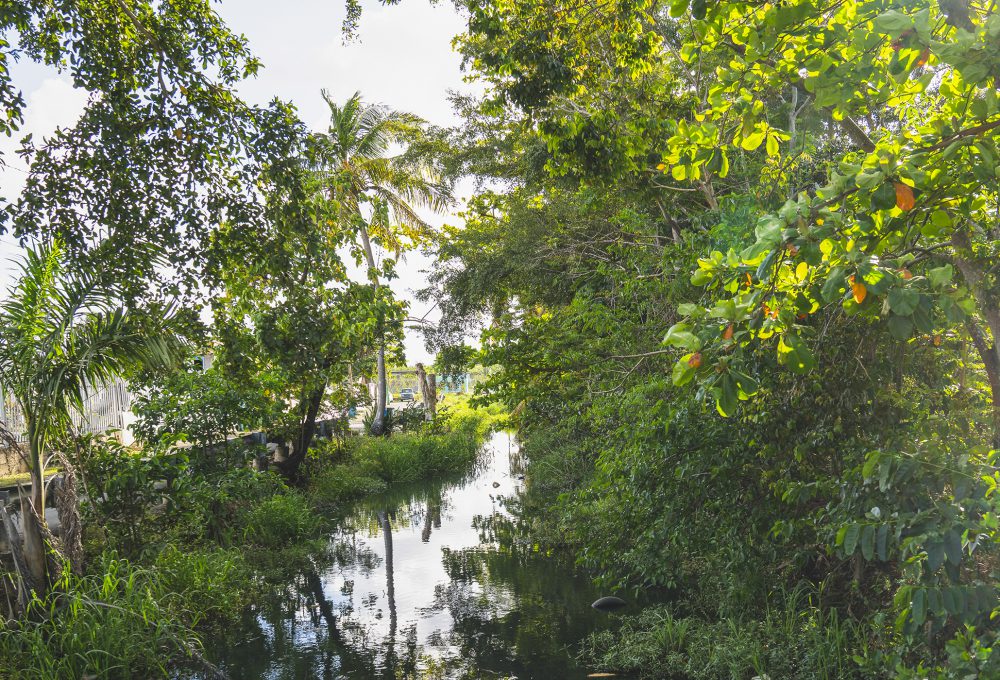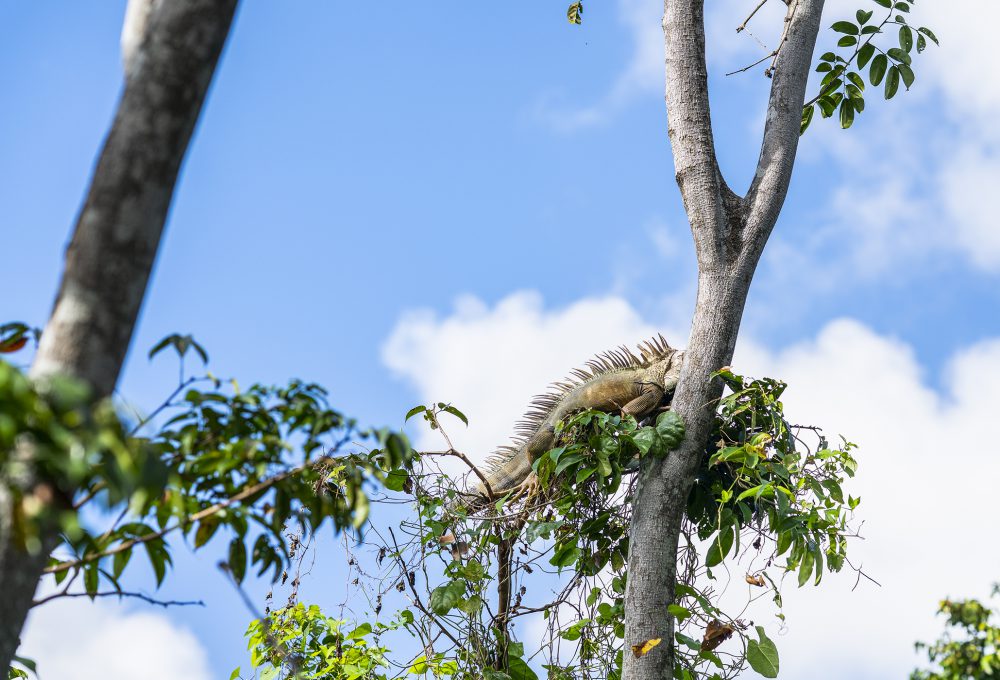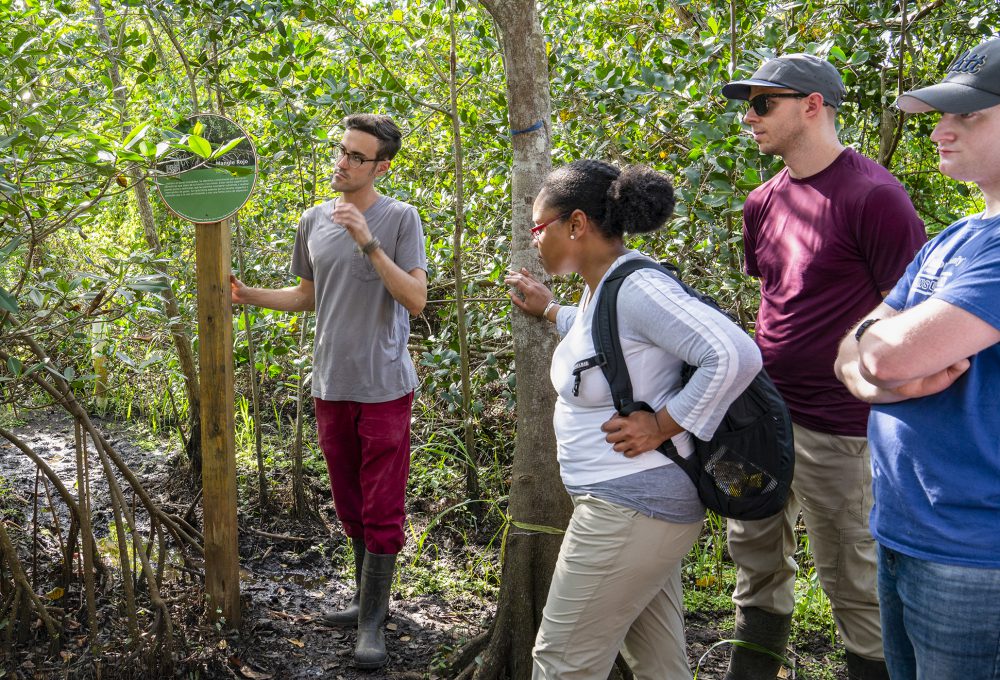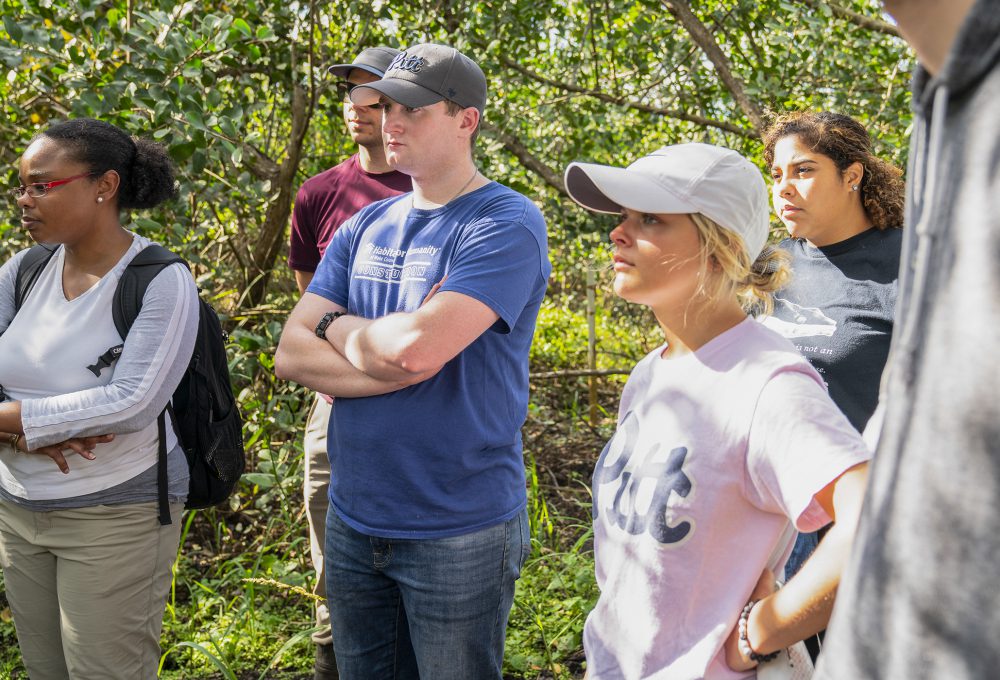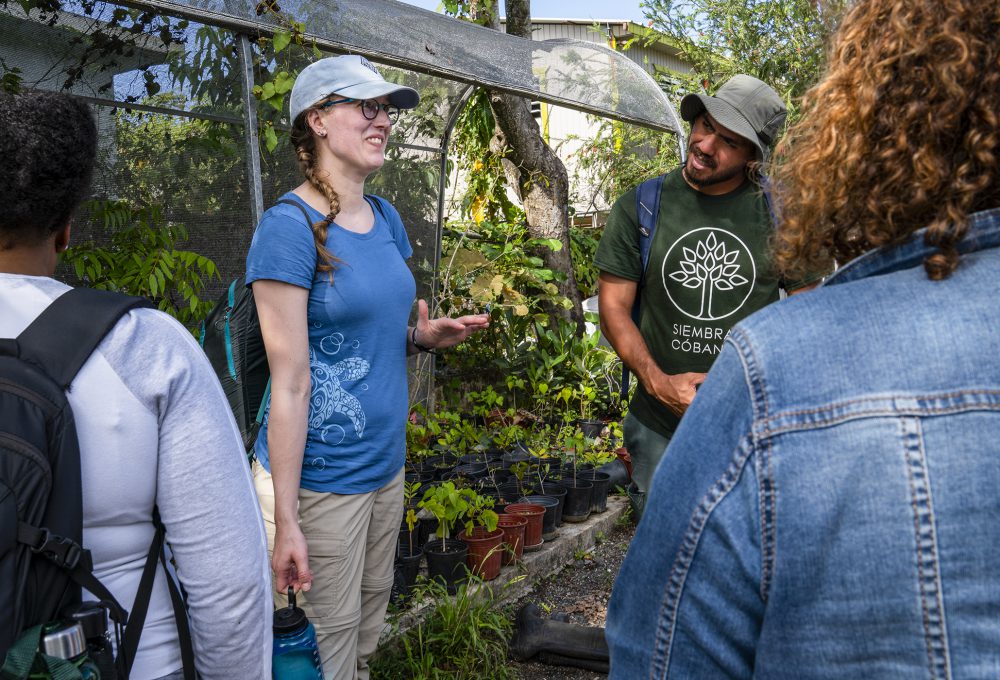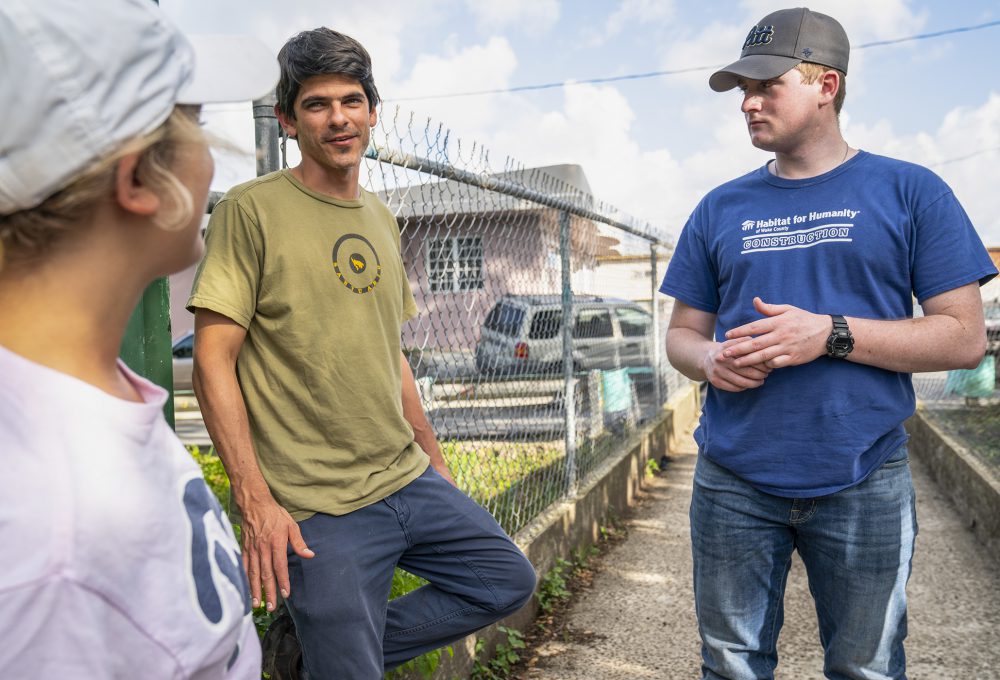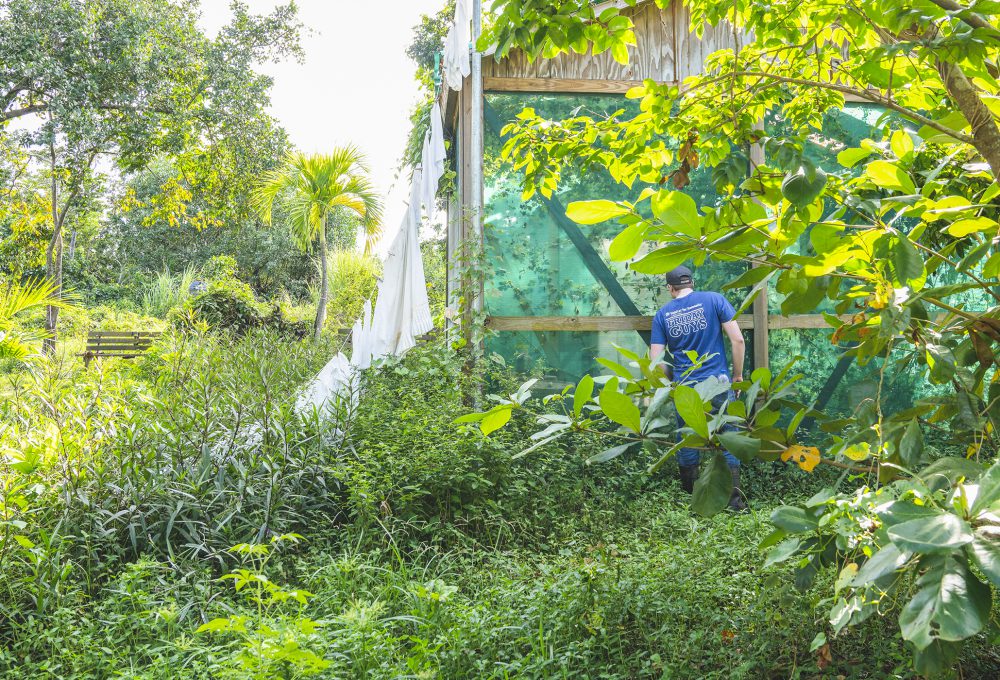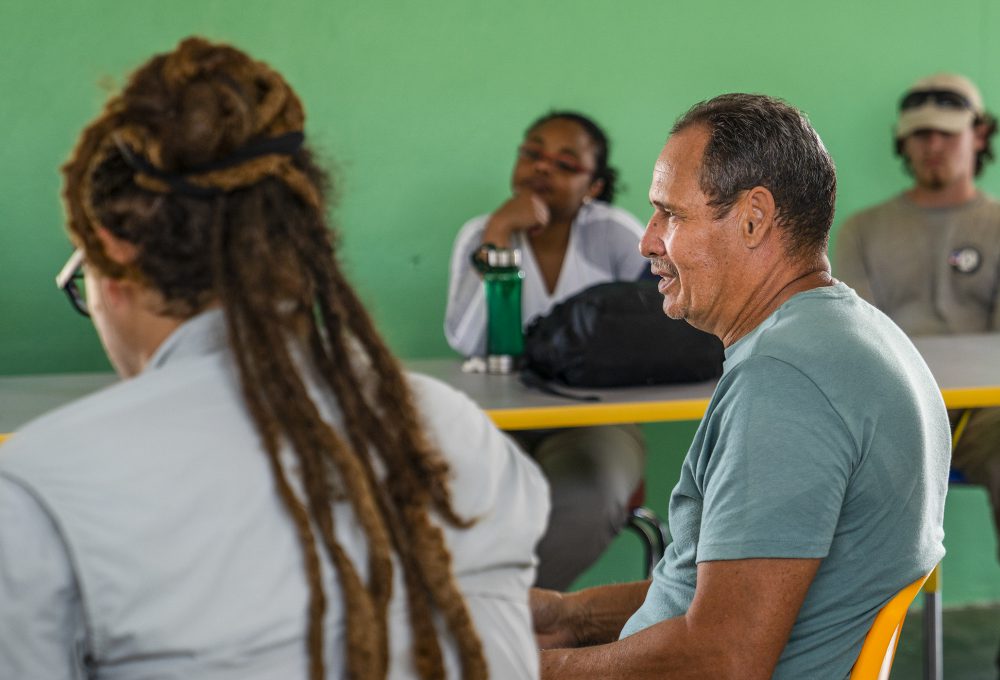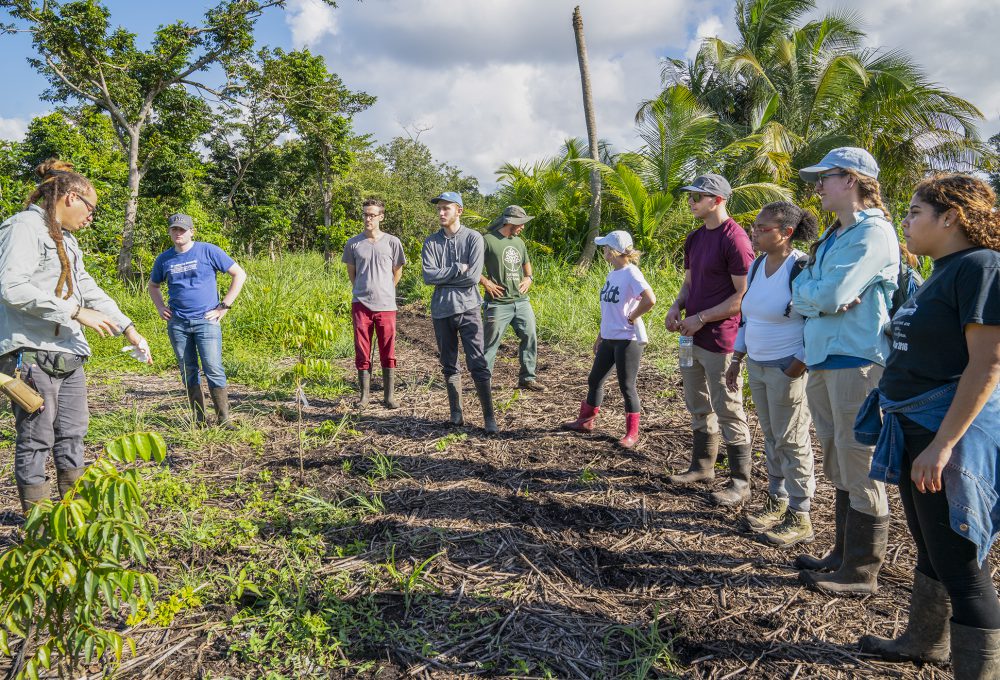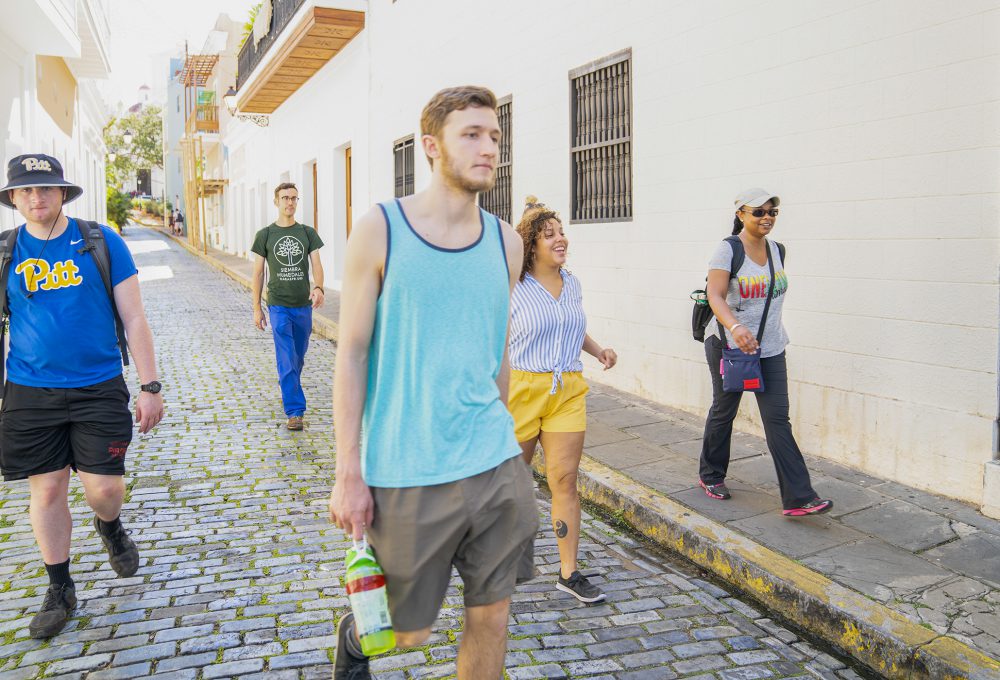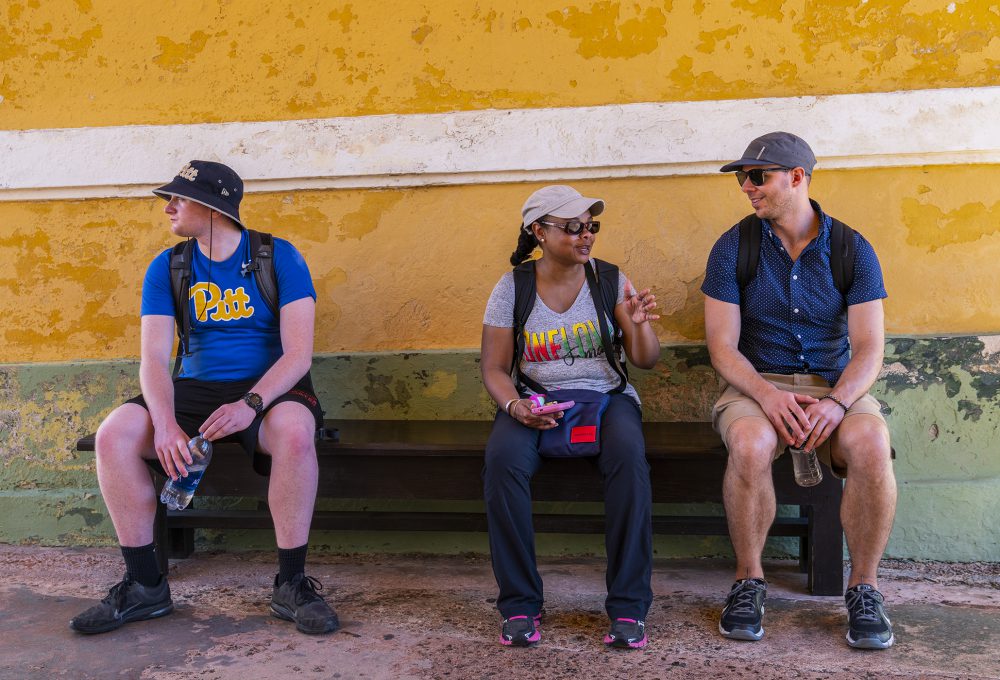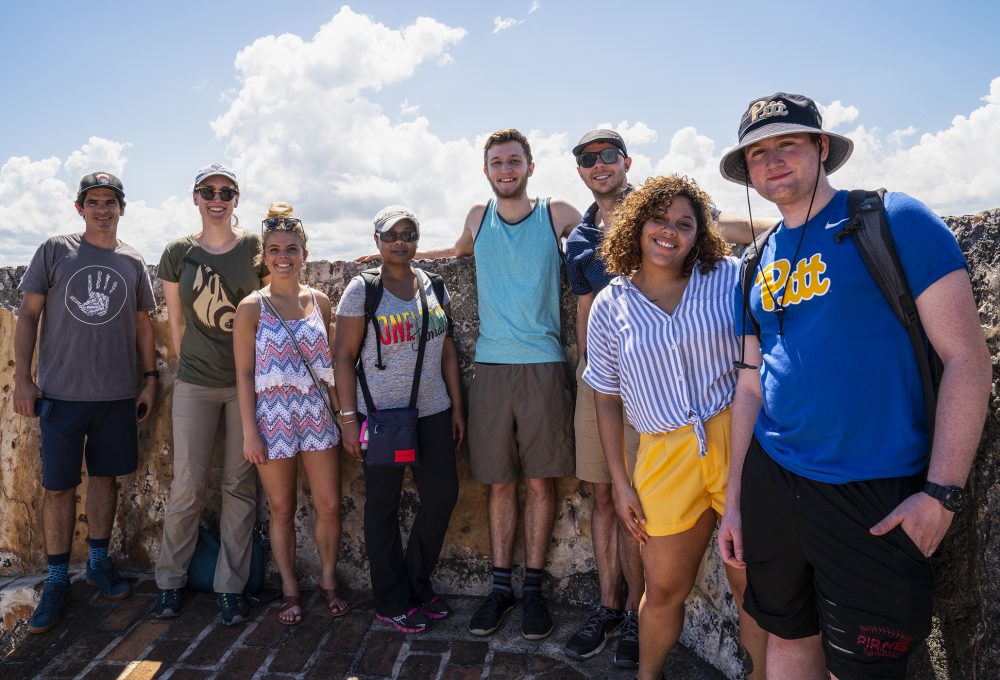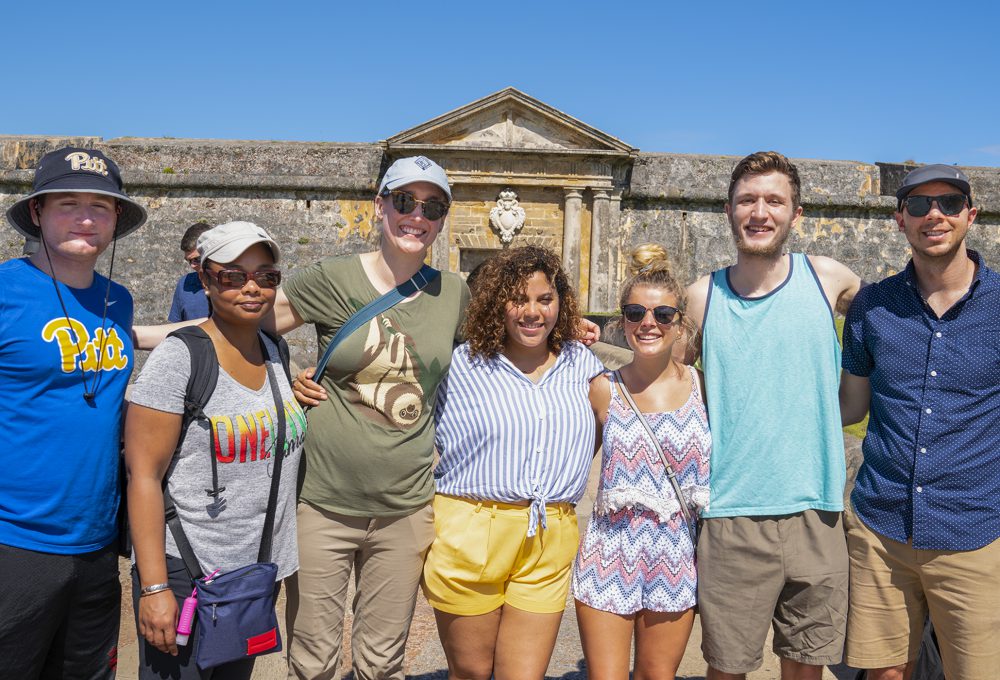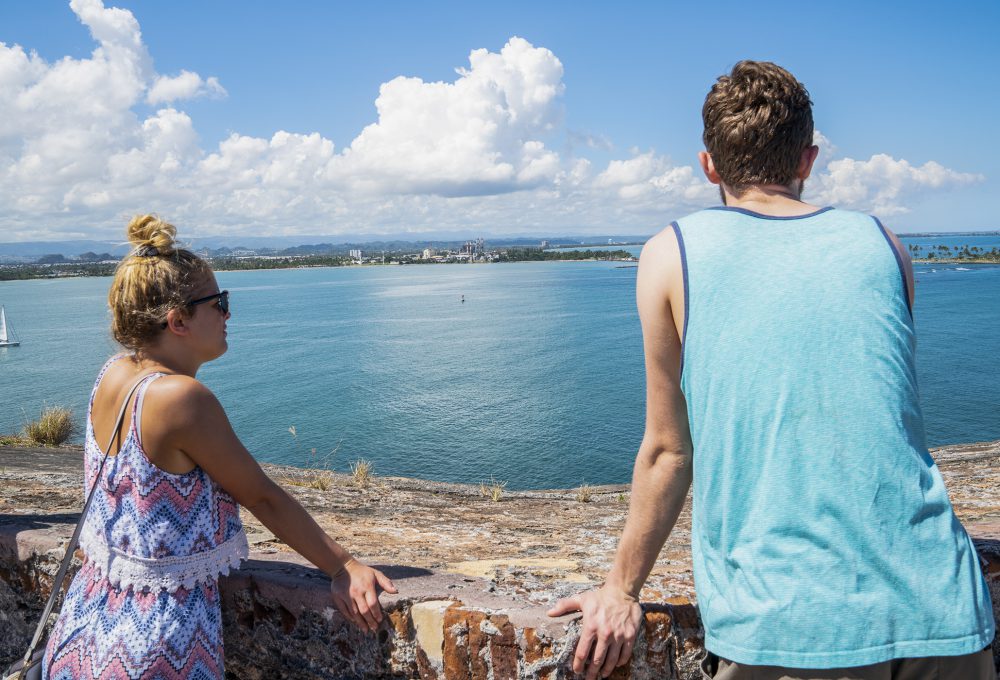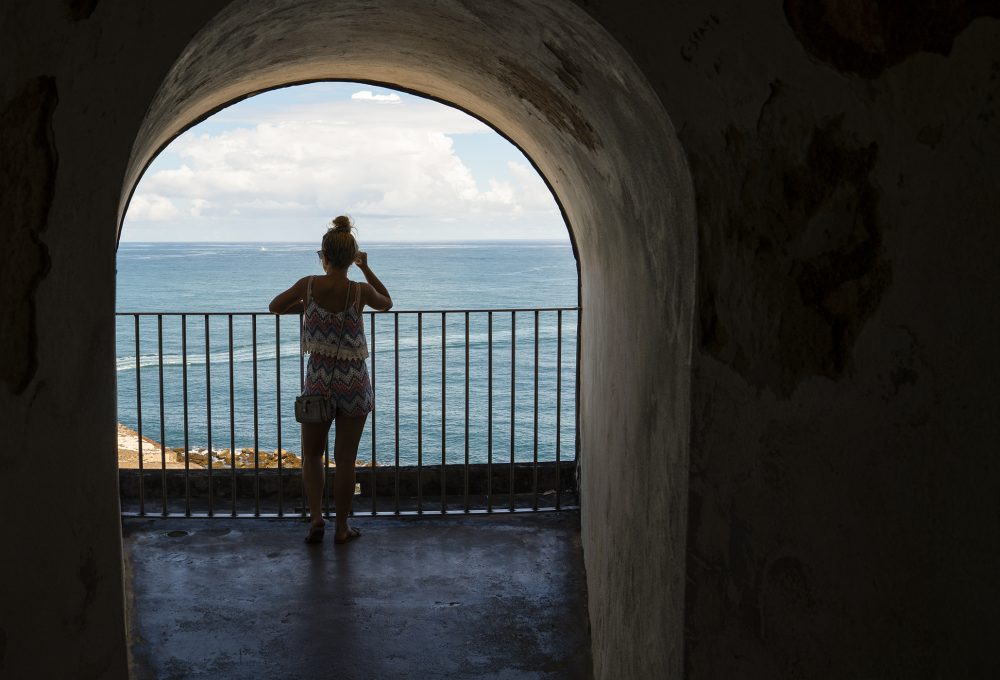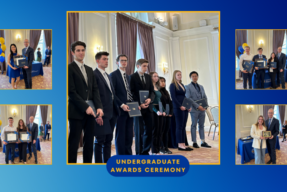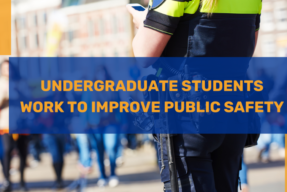There were moments when Jack Conville (Sophomore – Finance) felt miles from his comfort zone.
The first was when he felt a sudden, searing pain in his leg, as he stood in a wooded area in San Juan, Puerto Rico. Fire ants had infiltrated his clothing and were stinging him.
Conville knew he definitely wasn’t in Pittsburgh anymore.
The second moment happened a few days later. He and his classmates from the University of Pittsburgh College of Business Administration were prepared to give a presentation on their global service-learning project. They were expecting a small audience with their client. But word of their project spread. Dozens from the neighborhood showed up.
So great was the interest that a local resident translated their every word into Spanish.
“First I was talking too fast for the translator. Then I slowed down, and I was talking too slow,” Conville remembers.
Those two experiences, one painful, the other nerve-wracking, are things Conville won’t soon forget.
He was part of a student team who kicked off an ambitious global service-learning project between the Pitt Business International Programs Office and a community organization in San Juan, Puerto Rico. Expected to last at least a decade, the project is meant to provide social justice through education, contribute to economic development, and support environmental research, according to Bryan Schultz, director of international programs for Pitt Business.
Year one of the project involved working with the local nonprofit CARAS de las Americas to establish an environmental science laboratory for the study of urban wetlands. The lab will be located in a low-income area that is a melting pot of different cultures. The facility would, ideally, attract scientists from the United States and would offer after-school science programs for local children.
“Urban wetlands are exceedingly rare. They play a very important role in ecosystems as they are the best way to mitigate hurricanes and flooding. They also help to improve air quality,” Schultz says.
Urban wetlands act as natural buffers for the overflow of rainwater and flooding. They also are a breeding ground for many species of animals.
The importance of urban wetlands took on grim importance following Hurricane Maria in 2017. The Category 5 hurricane devastated Puerto Rico. Several years later, the island is still recovering.
Establishing a FIeld Outpost for Research and Education
There were a total of four students who worked on the Puerto Rico project with CARAS. The interdisciplinary team included Conville and also Francheska Pokora (Junior – Supply Chain Management & Human Resources Management), Brian Walsh (Junior – Supply Chain Management), and Roslynne Ravy (Senior – Environmental Science). They were supported by a faculty team that included Schultz and Audrey Murrell, the associate dean of Pitt Business, and two faculty from outside the business school: Kyle Whittinghill and Danielle Andrews-Brown, both from the Department of Geology and Environmental Science.
The students began the project in Pittsburgh, through the academic course BUS 1755 Service Learning in Organizations. First, they developed a scope of work for the client, as is commonplace in consulting projects. After working for a month, they then traveled to Puerto Rico for about a week over Pitt’s Spring Break to conduct field research and meet with representatives from CARAS and the community.
“We know that the lab has the potential to be an incredible community asset,” Walsh says. “In our project, we conducted an objective business analysis of the lab’s proposed operations. We examined challenges and opportunities, and came up with a plan to make the lab as effective as possible.”
The student team looked at existing field laboratories in the Caribbean and the southeastern United States as comparisons. They also surveyed U.S.-based field researchers to gauge their interest in the proposed lab in Puerto Rico. Additionally, the students created a business plan that included a pricing model to make the facility financially sustainable.
While in Puerto Rico, the students also met with a representative from the Big Idea Challenge grant competition of the nonprofit Fundacion Banco Popular. CARAS is a finalist for a $600,000 grant that would be a game-changer. The students presented their work to the nonprofit’s representatives to help support CARAS’s nomination for the award.
“By the last meeting, it felt like CARAS saw us as equals, and it felt like we were actually working with them,” Walsh says.
The theme of reciprocity ran deep through the project, according to the students.
The experience had additional meaning for Ravy, the environmental sciences student. Her family is from Puerto Rico. She expects that CARAS’ field laboratory will expand educational access to students who otherwise wouldn’t have access to study science and biology in a lab.
“It’s giving them a whole new chance at life,” Ravy says.
Working Together As One University
Another unique feature of the students’ project was that it involved different units of the University of Pittsburgh working together, says Audrey Murrell, associate dean of Pitt Business and director of the David Berg Center for Ethics and Leadership.
Pitt Business and the Dietrich School of Arts and Sciences teamed up on the project. Business students provided a sound business plan, while the faculty and student from the Department of Geology and Environmental Science addressed the scientific challenges of the project.
“The mission of Pitt Business is to take students From the Classroom, To the City, To the World,” Murrell says. “This project has done that, and so much more. We’re especially proud of what has been achieved through different schools within the University of Pittsburgh working together. It’s been amazing to see what has been accomplished.”
The students were in Puerto Rico for a week, but they foresee their impact living on much longer. Their project has the potential to transform the community by protecting urban wetlands, which are one of the world’s environmental wonders.
“I’ve never been so inspired by a class at Pitt,” Walsh says. “This class, the people at CARAS, they have such a passion for service. It lit a passion for me. I want to dedicate a career to service and am incredibly grateful for this experience.”
Pokora says the most memorable moment was the team’s presentation to the community, when a translator relayed their every word.
“The best part was seeing how engaged the community was with CARAS and how much they wanted to know about our project by attending our presentation,” she says.
The students’ project is the start of a long-term commitment that is expected to last at least 10 years, Schultz says. After this year’s group of students graduate, the project will continue. But that doesn’t mean the students will forget it.
“I can’t wait to pop in again in year six and see how the project is going,” Walsh says.
Learn More
The Pitt Business International Programs Office has a portfolio of global service-learning programs. Other ongoing projects include an initiative in Cochabamba, Bolivia to develop business operations for the nonprofit CEOLI and an initiative in Matelot, Trinidad and Tobago to develop an environmental tourism industry.
The intellectual foundation for global service-learning at Pitt Business is the school’s Certificate Program in Leadership and Ethics. The CPLE has offered domestic service-learning projects for more than a decade and was created through the David Berg Center for Ethics and Leadership.
